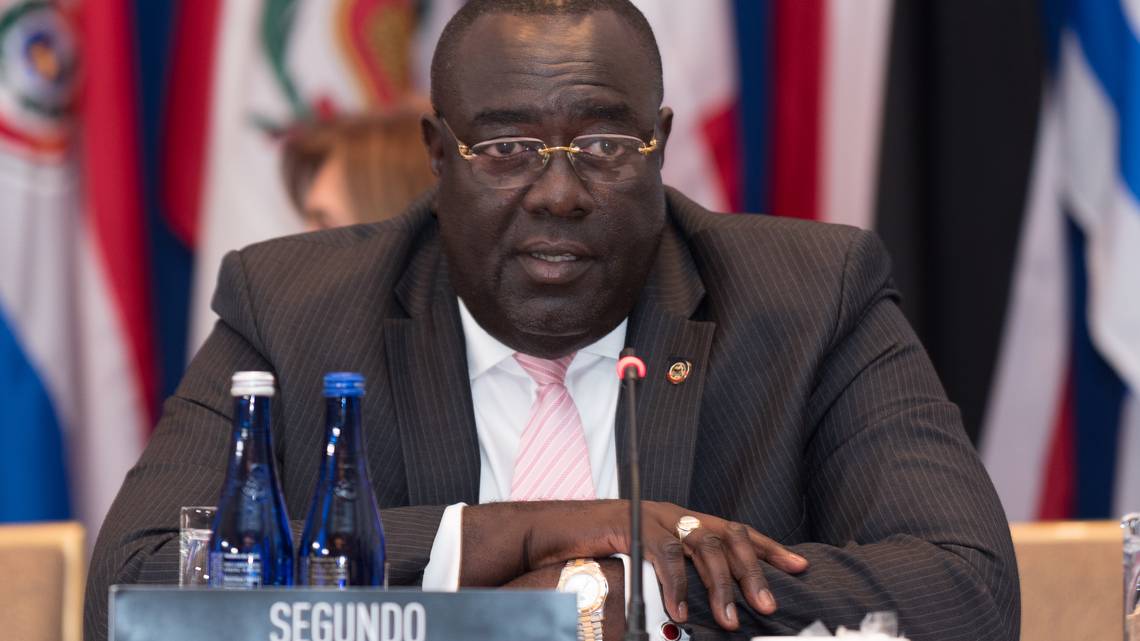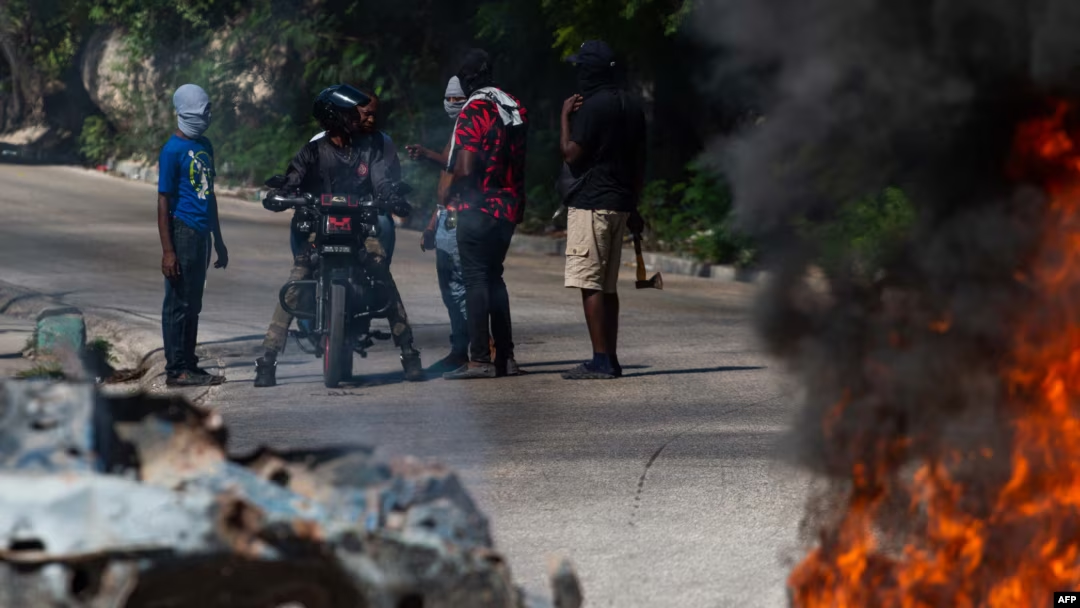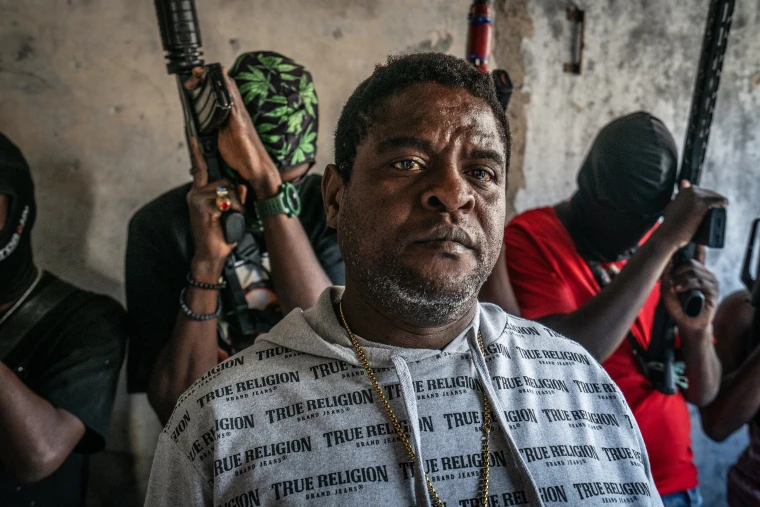Haiti, a country with a rich history and a unique cultural heritage, has long navigated a tumultuous path on the global stage. In the realm of international relations, the role of the Haitian Chancellor is pivotal, acting as the nation’s principal diplomatic figure and the voice of Haiti in critical negotiations abroad. Recently, the appointment of a new Haitian Chancellor has sparked interest both domestically and internationally. The Chancellor’s first mission abroad signals a new chapter in Haiti’s diplomacy, offering an opportunity to reshape its foreign policy and strengthen its global alliances.
This article explores the significance of the Chancellor’s diplomatic mission, the challenges Haiti faces on the international stage, and the potential for renewed global partnerships.
The Role of the Haitian Chancellor in Diplomacy
The Haitian Chancellor, also known as the Minister of Foreign Affairs, holds a crucial position in representing the nation’s interests abroad. This individual is tasked with:
- Strengthening Bilateral and Multilateral Relations: The Chancellor works to foster cooperation with foreign governments, regional organizations, and global institutions.
- Advocating for Economic Support: Haiti often relies on international aid and trade agreements, making economic diplomacy a key aspect of the Chancellor’s portfolio.
- Managing Haiti’s Image Abroad: The Chancellor is instrumental in projecting a positive image of Haiti, countering negative stereotypes, and highlighting the country’s potential for development.
- Addressing Migration Issues: With a significant Haitian diaspora, migration policies and the welfare of Haitian citizens abroad are critical areas of focus.
The New Chancellor’s Mission Abroad
The new Haitian Chancellor’s inaugural mission abroad represents more than just an introduction to global counterparts; it is an opportunity to address pressing issues that affect Haiti’s stability and development. Here are the key elements of this mission:
1. Rebuilding Trust with International Partners
In recent years, Haiti has faced challenges that have strained its relationships with international donors and allies. Political instability, corruption allegations, and governance concerns have raised questions about the effective use of foreign aid.
The new Chancellor aims to rebuild trust by presenting a clear vision for reform and accountability. Through meetings with key allies such as the United States, Canada, and the European Union, the Chancellor seeks to reassure partners of Haiti’s commitment to transparency and sustainable development.
2. Securing Economic Aid and Investments
Haiti remains one of the poorest countries in the Western Hemisphere, with a fragile economy heavily dependent on agriculture, remittances, and foreign aid. The Chancellor’s mission focuses on securing much-needed financial assistance and attracting foreign investment to stimulate economic growth.
Key proposals include:
- Expanding infrastructure development projects.
- Promoting tourism as a potential revenue generator.
- Seeking debt relief or favorable loan terms from international financial institutions.
3. Addressing the Security Crisis
Haiti’s security situation has deteriorated in recent years due to the rise of gang violence and political unrest. The Chancellor’s diplomatic efforts include seeking support from the United Nations and regional organizations like the Organization of American States (OAS) to address this crisis.
The Chancellor is likely to advocate for:
- Increased international assistance for police training and equipment.
- Strengthening judicial systems to combat impunity.
- Exploring peacekeeping or stabilization missions under the UN framework.
4. Strengthening Regional Integration
Haiti’s geographic location makes it a vital part of the Caribbean region. The Chancellor’s mission aims to deepen ties with organizations such as the Caribbean Community (CARICOM) and strengthen regional partnerships.
Priorities include:
- Enhancing trade relations with neighboring Caribbean nations.
- Collaborating on disaster preparedness and climate resilience initiatives.
- Advocating for regional support in addressing Haiti’s migration challenges.
Challenges Facing the New Chancellor
The Chancellor’s mission abroad is undoubtedly ambitious, but it comes with significant challenges:
1. Political Instability at Home
The lack of a functioning government in Haiti, coupled with ongoing protests and social unrest, undermines the Chancellor’s ability to present a unified front abroad. Questions about Haiti’s domestic stability may lead to skepticism among international partners.
2. Limited Resources for Diplomacy
Haiti’s financial constraints also affect its diplomatic capabilities. Embassies and consulates often operate with limited budgets, reducing their effectiveness in engaging with host countries.
3. Negative Perceptions of Haiti
Haiti’s history of political corruption, natural disasters, and economic hardship has contributed to a negative image abroad. Changing this narrative requires sustained efforts to highlight the country’s resilience, culture, and potential for growth.
4. Competing Global Priorities
The international community is facing numerous crises, from the war in Ukraine to climate change and the global refugee crisis. Haiti’s diplomatic efforts must compete for attention and resources in this crowded landscape.
Opportunities for Renewed Global Partnerships
Despite the challenges, the Chancellor’s mission abroad offers opportunities to forge new partnerships and strengthen existing ones:
1. Leveraging the Haitian Diaspora
Haiti’s diaspora, estimated at over two million people worldwide, is a powerful resource for economic and cultural diplomacy. Engaging with diaspora communities can help amplify Haiti’s voice on the global stage and attract investments in key sectors.
2. Showcasing Haiti’s Cultural Richness
Haiti’s vibrant culture, including its art, music, and history, can serve as a bridge to build stronger connections with other nations. Cultural diplomacy initiatives can help shift perceptions and foster goodwill.
3. Advocating for Climate Resilience
As one of the countries most vulnerable to climate change, Haiti has a compelling case for advocating for greater global action on this issue. By positioning itself as a leader in climate resilience, Haiti can attract support for sustainable development projects.
4. Expanding Trade and Investment Opportunities
Haiti’s strategic location and untapped market potential make it an attractive destination for foreign investors. By improving regulatory frameworks and offering incentives, the country can position itself as a hub for regional trade and investment.
Conclusion: A Diplomatic Journey with High Stakes
The new Haitian Chancellor’s mission abroad is a critical moment for Haiti’s foreign policy and international standing. It represents an opportunity to address the country’s most pressing challenges, from economic instability to security concerns, while laying the groundwork for a more stable and prosperous future.
The road ahead is not without obstacles, but with strategic vision and unwavering commitment, Haiti can leverage its diplomacy to rebuild trust, secure international support, and foster meaningful partnerships. As the Chancellor embarks on this journey, the world will be watching closely, hopeful for a new era of progress and collaboration for the people of Haiti.




